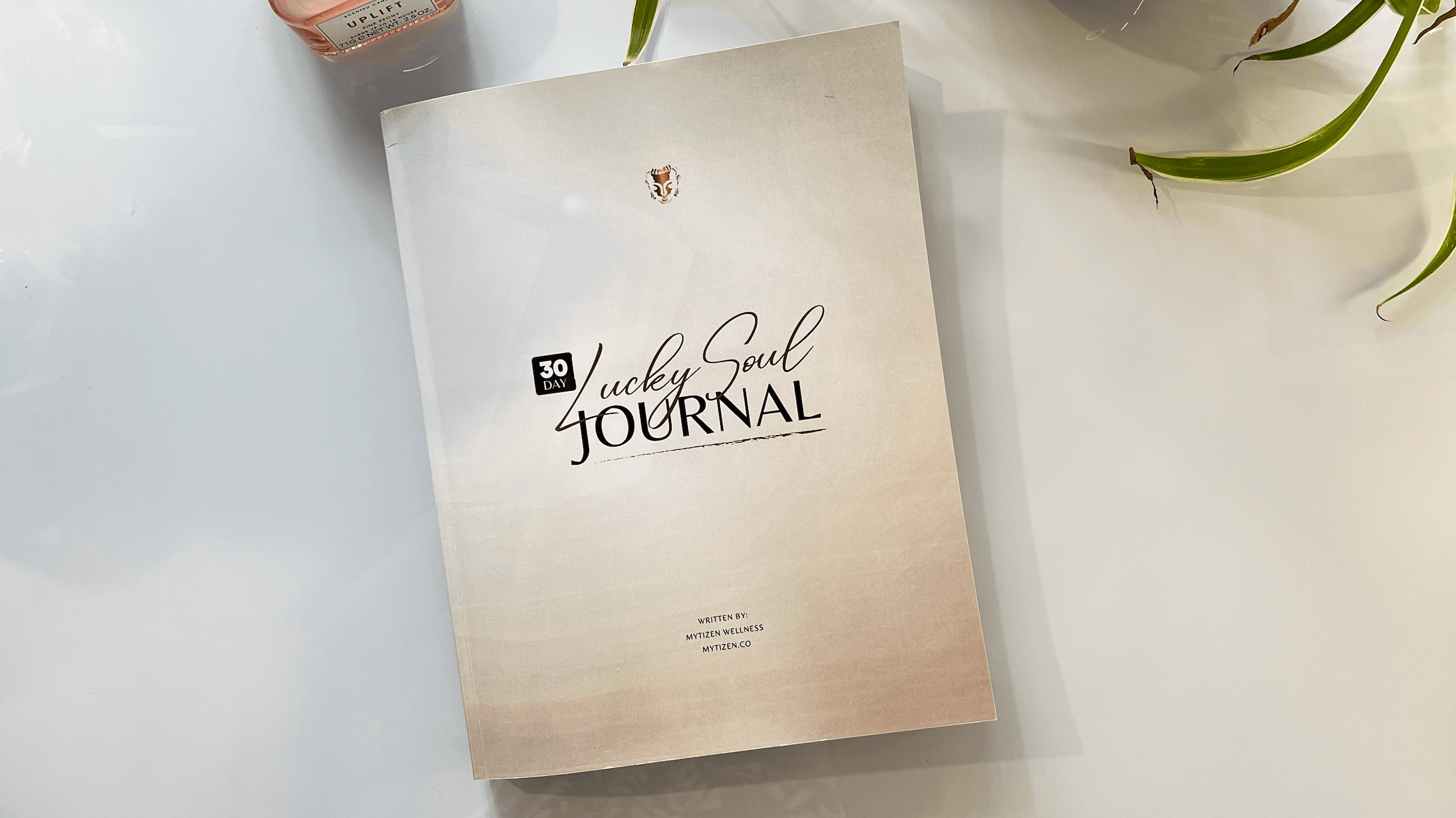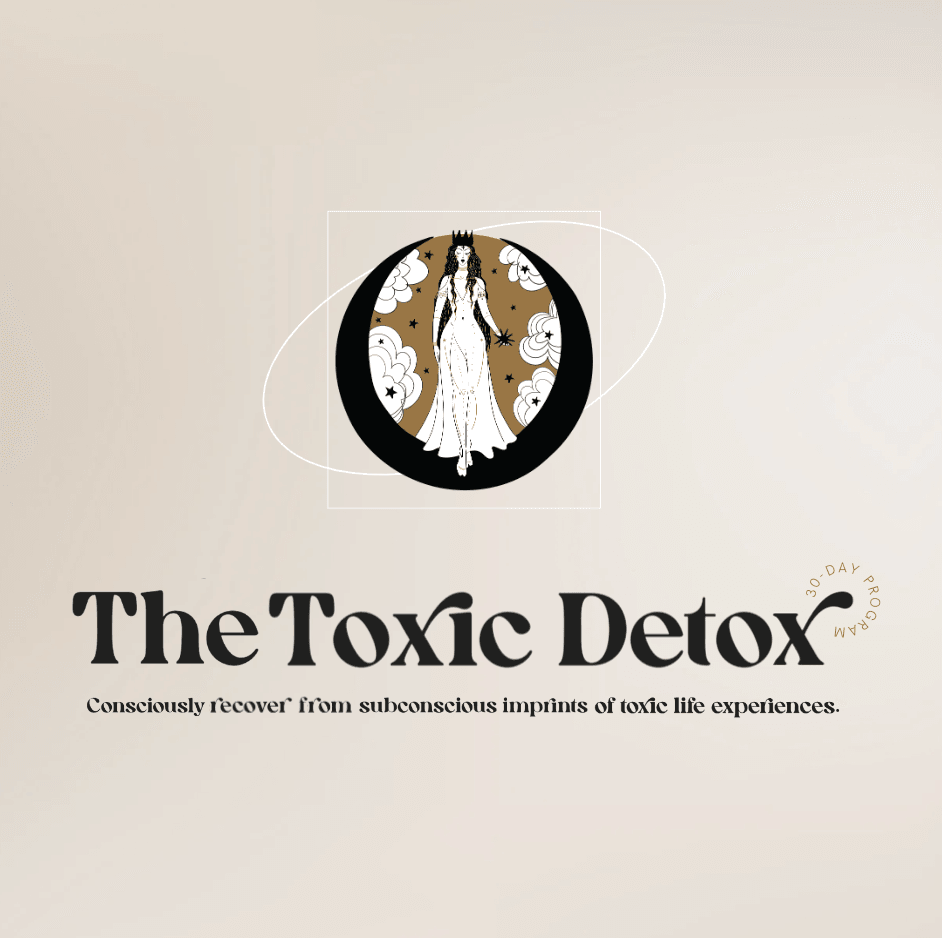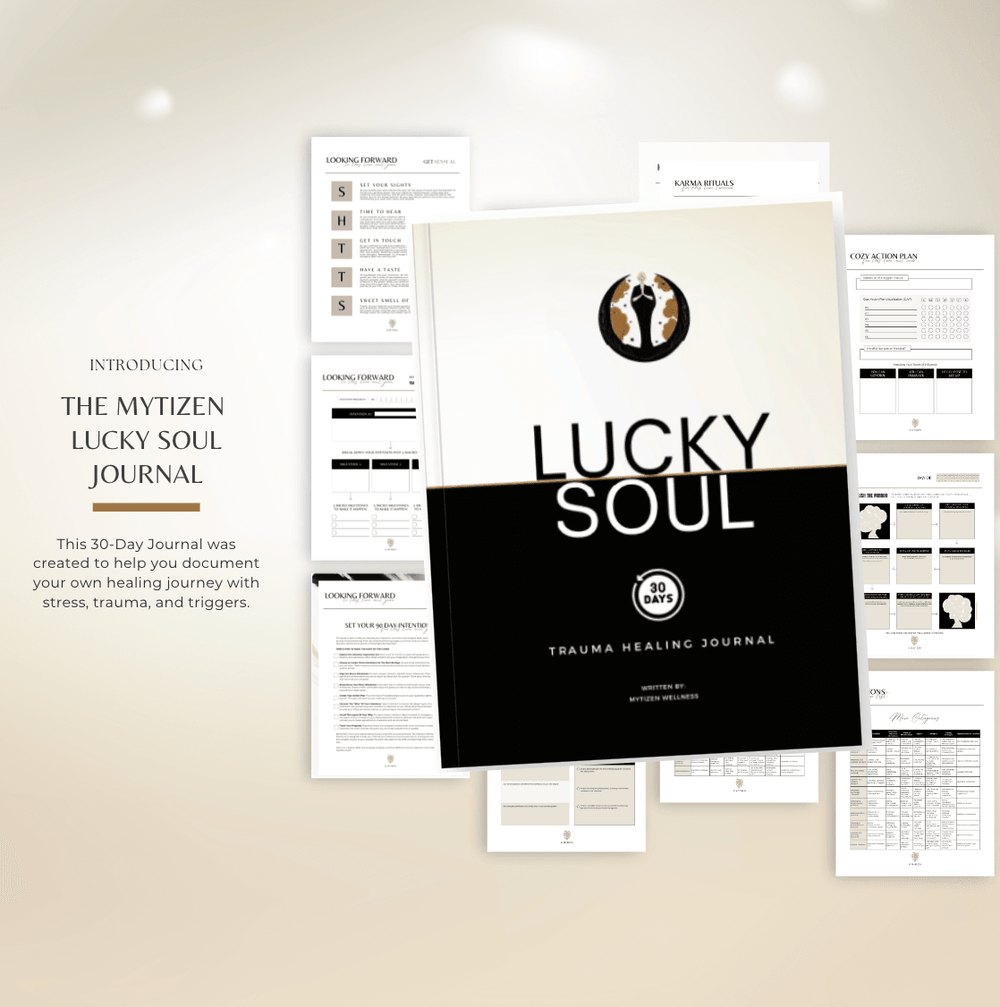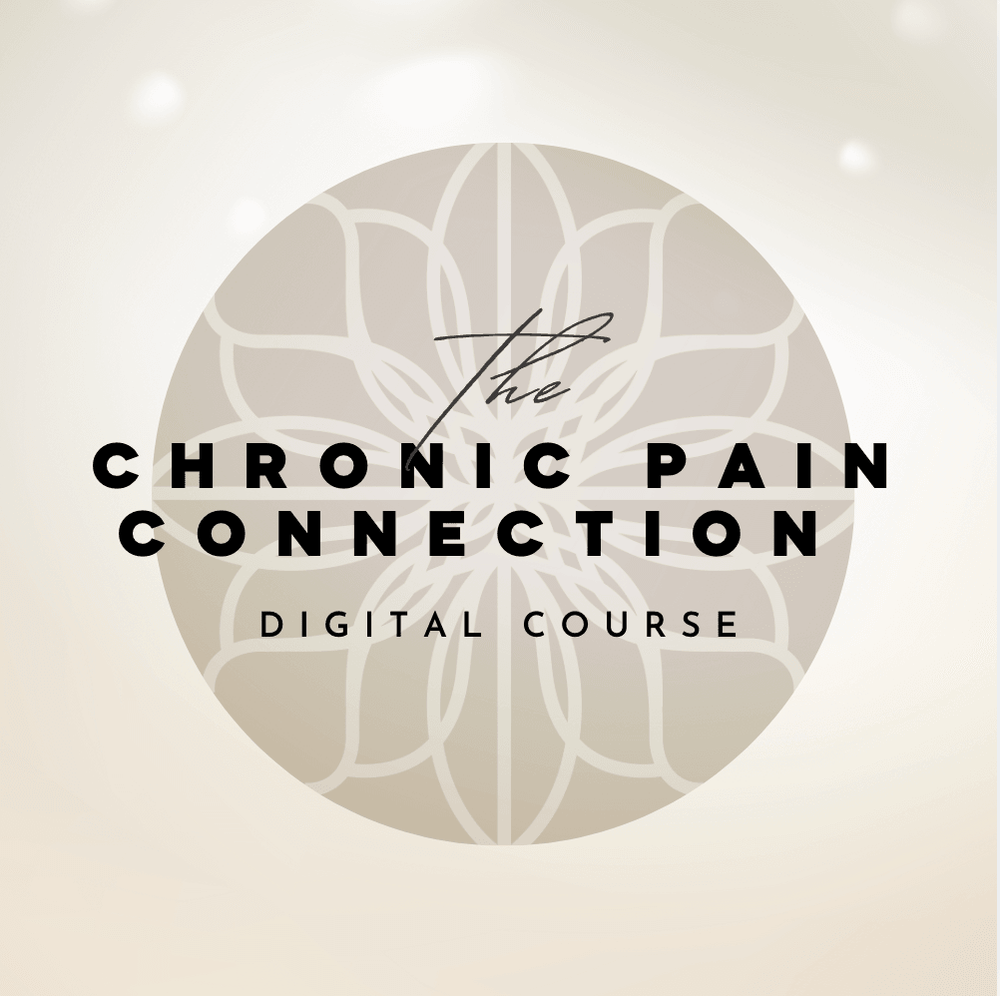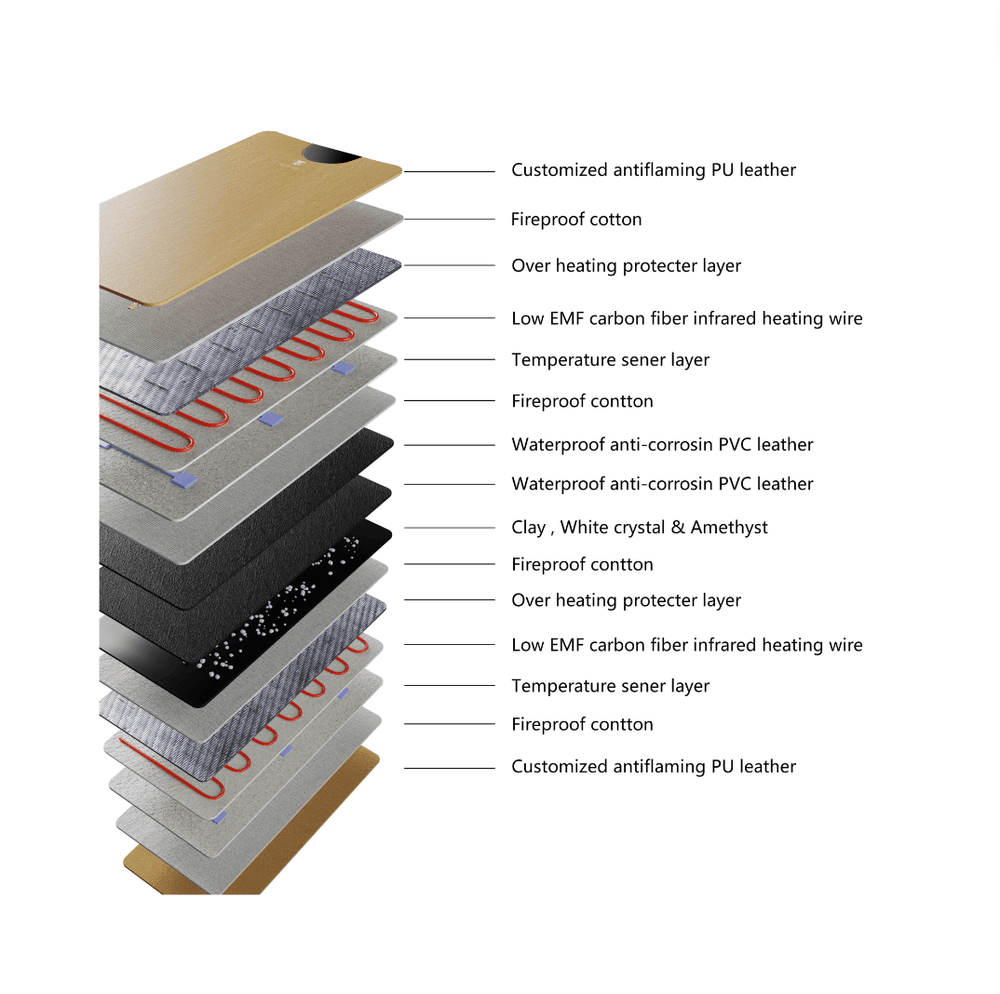The Power of Journaling for Trauma Recovery
The journey of trauma recovery can be long and challenging, filled with emotional ups and downs. It is a deeply personal process that requires time, patience, and self-reflection. One powerful tool that can support you in your healing journey is journaling.
Journaling provides a safe space to explore your thoughts, emotions, and experiences, allowing for self-discovery, growth, and healing. In this blog, we will delve into the power of journaling for trauma recovery, understanding its role, the science behind it, different techniques, challenges, solutions, and tips for sustaining a journaling habit.
If you are ready to embark on a personal journey of reflection, mindfulness, and gratitude, then journaling may be just what you need.
I know I'm not the only one wondering... What are the benefits of journaling?
Journaling has numerous benefits for trauma recovery. It helps to process emotions, reduce stress, improve self-awareness, and gain clarity. It also acts as a form of self-expression promotes mindfulness, and serves as a safe space to explore thoughts and feelings without judgment. (Listen to Ep 001: Healing Trauma When You Can’t Find Your Words if you struggle with the ability to talk about your trauma.) And that is what we are going to dive into in this article.
Understanding Journaling and Its Role in Trauma Recovery
Journaling is not just a mere act of writing down one's thoughts and experiences, but rather, it is a powerful tool for self-exploration, growth, and healing.
By engaging in regular journaling practice, you can create a space to dive deep into your inner world, capturing your thoughts, emotions, and insights.
It is a personal documentation of experiences, providing an opportunity for reflection, introspection, and personal growth.
Within the context of trauma recovery, journaling allows you to release pent-up feelings and stress, reduce triggers and chronic pain, promote mental clarity, emotional processing, and resilience, and foster adaptive coping strategies.
How Journaling Helps in Trauma Recovery Manifestation
Journaling has been recognized as an effective tool for trauma recovery, providing numerous benefits for those on their healing journey.
One of the ways journaling aids in trauma recovery is by allowing you to release pent-up feelings and stress. Writing about traumatic experiences, triggers, and emotions provides an outlet for expression, facilitating a sense of relief and catharsis. By externalizing these thoughts and emotions, you can begin to process and make sense of your trauma, reducing the emotional burden they carry.
Moreover, journaling helps to reduce triggers and chronic pain associated with trauma. By identifying triggers and documenting their impact, you can gain insight into their stressors, enabling you to develop effective coping strategies. Chronic pain, often a physical manifestation of trauma, can also be addressed through journaling, as you may discover patterns, triggers, or new coping mechanisms by reflecting on your pain experiences.
In addition, journaling promotes mental clarity and emotional processing. Through the act of writing, you can gain perspective, identify patterns, and make connections between your thoughts, feelings, and experiences. This process of reflection and introspection allows for a deeper understanding of one's trauma, fostering personal growth and healing.
Furthermore, expressive writing, a form of journaling, has been shown to provide relief from trauma-related symptoms. By delving into the deepest recesses of your trauma, you can confront the emotions, memories, and fears in a safe and controlled manner. This practice of confronting and exploring trauma-related thoughts and feelings can lead to a reduction in symptoms, such as anxiety, depression, and post-traumatic stress disorder (PTSD).
Lastly, regular journaling practice encourages resilience and adaptive coping. By engaging in journaling consistently, you develop a habit of self-reflection, self-care, and personal growth. Journaling becomes a powerful tool for navigating the challenges of trauma recovery, providing a sense of stability, empowerment, and progress along the healing journey.

The Science Behind Using A Journal for Trauma Recovery
As journaling gains recognition as an effective tool for trauma recovery, scientific research is shedding light on the underlying mechanisms of its healing power. Understanding the science behind journaling is key to appreciating its impact on mental, emotional, and physical well-being. By exploring the mind-body connection and the brain's response to trauma, we can gain a deeper understanding of why journaling is a powerful tool in the recovery process.
The Mind-Body Connection
The mind and body are intricately connected, with one affecting the other in profound ways. Journaling plays a significant role in fostering mindfulness, which is the practice of being fully present and engaged in the current moment. By focusing on the act of writing, you can cultivate a state of mindfulness, allowing yourself to gain clarity, reduce stress, and improve mental and physical health.
In terms of physical health, journaling has been shown to have positive effects on various aspects of well-being. Regular journaling practice is associated with reduced stress levels, decreased blood pressure, and improved immune function. By reducing stress, journaling can alleviate the physical toll that trauma takes on the body, supporting overall health and well-being.
On the mental health front, journaling provides an effective way to express and process emotions, thoughts, and experiences, leading to improved mental well-being. Through journaling, you can gain insights into your mental landscape, uncovering triggers, patterns, and areas of growth. This self-reflection promotes a greater sense of self-awareness, emotional regulation, and personal growth, ultimately supporting trauma recovery. Additionally, journaling can serve as a tool for practicing self-compassion, as you explore your thoughts and feelings with kindness and understanding.
By harnessing the power of mindfulness, journaling offers you a holistic approach to trauma recovery, addressing both physical and mental well-being. It allows you to cultivate a deeper connection with yourself, promote self-care, and foster resilience in the face of trauma.
Journaling and the Brain's Response to Trauma
Trauma can have a profound impact on the brain, disrupting its normal functioning and prolonging the healing process. Journaling, however, has the potential to positively influence the brain's response to trauma, promoting healing and recovery.
Engaging in regular journaling habits can help rewire the brain's response to trauma triggers. By writing about traumatic experiences, you create an opportunity to confront and process past trauma, helping to desensitize the brain to triggers over time. This gradual exposure to trauma-related thoughts, emotions, and memories can support the brain in developing new associations and responses, ultimately reducing the intensity of triggered responses.
Furthermore, reflective journaling can facilitate cognitive restructuring after trauma. By writing about traumatic experiences, or memories you can gain a new perspective, challenge negative beliefs, and reframe your narrative. This practice of cognitive restructuring can lead to more adaptive thoughts, attitudes, and behaviors, aiding in the trauma recovery process.
The act of journaling also promotes emotional regulation and resilience. Writing about trauma allows you to externalize and process your emotions, providing a sense of relief and control. Through journaling, you can develop a greater awareness of your emotional landscape, cultivate healthy coping mechanisms, and foster resilience in the face of traumatic memories.
Additionally, journaling supports the brain's adaptive coping mechanisms, enabling you to better manage the stress associated with trauma. By engaging in regular journaling practice, you can build a habit of self-reflection, allowing you to identify stressors, triggers, and effective coping strategies. This habit of journaling can strengthen neural pathways associated with stress management, enhancing the brain's ability to navigate trauma-related challenges.

Common Challenges and Solutions in Journaling for Trauma Recovery
Journaling can be an effective tool for trauma recovery, but it is not without its challenges. Many individuals struggle with consistent journaling, finding it difficult to maintain a regular habit. However, there are solutions to overcome these challenges and make journaling a more successful and beneficial practice.
Finding the Time
One common challenge is finding the time and motivation to journal regularly. Life can get busy, and it's easy to prioritize other tasks over journaling. To combat this, it can be helpful to schedule dedicated time of day for journaling each day or week. Treat it as a non-negotiable appointment with yourself, just like you would with any other important commitment.
Writers Block
Another challenge in journaling for trauma healing is experiencing writer's block. Sometimes it can be difficult to know where to start or what to write about, especially when dealing with complex emotions associated with trauma.
In such cases, it can be helpful to use prompts or guided journaling exercises to spark inspiration and generate new ideas. These prompts can range from simple questions like "How do you feel today?" to more specific prompts related to trauma, such as "Describe a time when you felt overwhelmed by your emotions and how you managed to overcome it."
By using these prompts, you can bypass the writer's block and open up a channel for self-expression.
Managing Expectations
One of the challenges in journaling for trauma recovery is managing expectations. Oftentimes, individuals expect immediate results or a quick fix to their emotional pain through journaling. However, it's important to understand that healing takes time and that the benefits of journaling may not be evident right away.
To overcome this challenge, it's crucial to shift your mindset and approach journaling as a process rather than a solution. Remind yourself that each entry is a step forward in your healing journey. Focus on the act of self-expression and reflection, rather than solely seeking immediate relief. By acknowledging that progress may be gradual and ongoing, you can embrace the journey of journaling for trauma recovery with patience and acceptance.
Overwhelm and Emotional Triggers
Another challenge in journaling for trauma recovery is the potential overwhelm or emotional triggers that may arise while writing. Opening up old wounds can be difficult and may bring up intense emotions. It's important to create a safe space for yourself while journaling, both physically and mentally.
To address this challenge, establish a supportive environment for your journaling practice. Find a quiet and comfortable space where you feel secure. Consider incorporating calming rituals before you begin.
Overcoming Fear of Judgment
Moreover, another challenge you may face in journaling for trauma recovery is self-censorship. It's common to hold back certain thoughts or emotions out of fear or shame. However, journaling should be a safe space for honest reflection and exploration. Creating a secure writing environment is crucial in conquering the fear of being judged.
Journaling provides a safe space to express oneself authentically and without inhibition, promoting emotional healing. Overcoming the fear of judgment in journaling encourages compassion towards one's own writing and fosters vulnerability, ultimately aiding in the healing process. Embracing vulnerability and addressing fear of judgment through journaling allows for genuine self-expression, making it an important aspect of trauma recovery.
Benefits of journaling for mental health
Journaling has long been praised for its numerous benefits on mental health. When it comes to trauma recovery, journaling can play a vital role in the healing process. By putting pen to paper, you invite a powerful form of self-expression that can help you navigate through your emotions and experiences.
Manage anxiety and reduce stress
Amid challenging times, 4 in 10 adults in the US have reported symptoms of anxiety and depression. Embrace journaling as a healthy outlet for stress relief and self-care, promoting mental clarity and emotional well-being. Capture daily stressors and triggers in your diary entry and engage in gratitude journaling to alleviate anxiety and stress. Incorporating new habits like bullet journaling or meditation can further enhance the purpose of your journal, aiding in stress reduction and overall well-being.
Ease Chronic Pain
In addition to its mental health benefits, journaling has also been found to ease chronic pain in a healthy way. Chronic pain can be physically and emotionally draining, often resulting in a decreased quality of life. By incorporating journaling into your daily routine, you can gain a better understanding of your pain triggers, patterns, and emotional responses. This self-awareness can help you develop coping strategies and communicate effectively with healthcare professionals.
Journaling allows you to track your pain levels, identify any patterns or trends, and document the effectiveness of different treatments or interventions. It also provides a safe space to express your emotions and frustrations related to your chronic pain, which can be cathartic and provide emotional release. Writing down your thoughts and feelings about your pain can help you process and make sense of them, ultimately leading to a greater sense of control and empowerment.
Gain Mindfulness over Triggers
In the world we live in, it's no surprise that we often find ourselves overwhelmed by the numerous triggers that surround us. These triggers can range from everyday stressors to deeper emotional wounds that have yet to heal. But here's where journaling comes in as an invaluable tool for gaining mindfulness over these triggers.
By taking the time to write down and reflect on your daily experiences, you open a door to self-awareness that allows you to identify and understand what triggers your stress and anxiety. Journaling allows you to explore the roots of these triggers, whether they stem from external factors or internal thought patterns. Through this process, you can begin to recognize recurring themes or situations that consistently trigger your emotional responses.
Once you have identified your triggers through journaling, you can then develop strategies to better manage them. Whether it's practicing relaxation techniques, seeking support from loved ones, or engaging in healthy coping mechanisms, journaling helps you understand which methods work best for you.
Furthermore, regularly journaling about your triggers and emotional responses can help you track your progress over time. You may notice that certain triggers lose their power over you as you become more self-aware and develop effective ways of dealing with them , while others may continue to challenge you. The act of journaling allows you to create a record of your journey, giving you insight into your growth and reminding you of the strategies that have proven successful in the past.
In addition to gaining mindfulness over triggers, journaling also offers a space for processing and making sense of your emotions. Oftentimes, our feelings can be tangled and confusing, causing us to feel overwhelmed or stuck. By putting pen to paper, you give yourself permission to explore and untangle these emotions, bringing clarity and understanding to your inner world.
Helps cope with depression
Journaling can be a powerful tool in coping with depression. When you take the time to write down your thoughts and feelings, it provides an outlet for them to be expressed and processed. This act of self-reflection can help you gain insight into the patterns and triggers that contribute to your depression. By identifying these factors, you can begin to develop strategies for managing them and finding ways to bring more joy and fulfillment into your life.
May help reduce PTSD symptoms
By capturing trauma triggers and thoughts related to PTSD, you can utilize journaling techniques to process trauma and its associated symptoms in a safe and reflective manner. Documenting your journey of trauma recovery through journaling provides an insightful record of your progress, offering a tangible roadmap of how far you've come. Engaging in daily journaling allows for the continuous addressing and alleviation of PTSD symptoms. As you adopt journaling as a tool for managing trauma-related stress and triggers, you'll find that it becomes an indispensable part of your daily routine, aiding in your healing process.
Strengthens immune cells
Supporting your immune system and overall health, embracing the use of a blank page for promoting physical well-being is an important thing. Utilize your morning pages to foster gratitude and compassion for your physical health by documenting daily wellness practices and habits in your gratitude journal. Whether it's a diary entry about a new habit or a list of things you're grateful for, daily journaling plays a significant role in your immune system support.
Helps you achieve goals
By using journaling as a tool for goal-setting, you can significantly increase your chances of success. When you write down your goals, you create a clear and tangible vision for what you want to achieve. This act of visualization helps to solidify your intentions and motivates you to take action towards your goals. Additionally, by regularly journaling about your progress, setbacks, and lessons learned, you gain valuable insights that can inform your future actions and keep you on track. Journaling also allows you to track milestones and celebrate your achievements along the way, providing a sense of fulfillment and satisfaction.
Track progress and growth
Documenting your journey through regular journaling allows you to capture daily experiences and personal growth. Embrace this practice as a tool for tracking your mental well-being and reflecting on trauma recovery milestones. Utilize your journal to track progress, from the small moments of gratitude to significant achievements. Whether it's through a gratitude journal, bullet journaling, or our Lucky Soul journal, the purpose of your journal is to help you recognize growth. Consider using specific topics or templates to form new habits, and remember to be kind to yourself as you write. Embracing the next step in your trauma recovery journey starts with a blank page and your thoughts.
Builds Gratitude and A Sense of Empowerment
One of the most powerful benefits of journaling is its ability to cultivate gratitude and a sense of empowerment within you. By consistently writing down the things you are grateful for each day, you train your mind to focus on the positive aspects of your life. It serves as a reminder that even in challenging times, there are always things to be thankful for.
Moreover, journaling gives you a sense of empowerment as you reflect on your accomplishments, big or small. When you write about your achievements and milestones, you become more aware of your capabilities and potential. This awareness fuels your motivation to continue striving for success and encourages you to set new goals for yourself. By documenting your journey, you are able to see the progress you have made over time, which instills a sense of pride and confidence in your abilities.
In addition, journaling is one of the best ways to explore your thoughts and emotions in a safe and non-judgmental space. It provides an outlet for self-expression and reflection, helping you gain clarity and understanding of your own experiences. Through writing, you can unravel complex feelings, untangle thoughts, and uncover patterns or triggers that may be holding you back.

Know you're not alone in wondering how to get started with journaling for mental health in 2024
We recommend our Lucky Soul Journal and using the traditional pen-and-paper approach.
Using a physical beautiful notebook for journaling can have its own unique benefits. The act of writing by hand can increase mindfulness and engagement with your thoughts. It allows for a more personal and intimate connection with your emotions as the ink flows from the pen into your journal entries. The tactile experience of turning pages and feeling the weight of your journal in your hands adds a sense of tangibility to your reflections and journaling routine. Plus, there's no risk of distractions from notifications or other digital temptations.
The guided prompts are designed to help you delve deeper into your emotions and thoughts, guiding you toward self-discovery and growth. Whether it's exploring gratitude, practicing mindfulness, or reflecting on challenges and achievements, the Lucky Soul Journal offers a variety of prompts to inspire and support your mental health journey.
In a world that is increasingly immersed in technology, sometimes it's refreshing to return to the basics - especially when it comes to journaling for mental health. While digital apps have their advantages, there's something undeniably therapeutic about putting pen to paper and immersing yourself in the tactile experience of physical journaling.
Once you have that, getting started with your mental health journaling journey involves a few simple steps. To get started with journaling, find a quiet and comfortable space where you can reflect and write. Set aside dedicated time each day or week to journal. Start by writing about your thoughts, emotions, and experiences. Don't worry about grammar or structure; simply let your thoughts flow onto the page. Such a great way to connect with your inner self.
And that's that!
Wrapping up this article, by incorporating mindfulness prompts into your journaling practice can bring depth and insight to your writing. Shifting your focus from trauma to gratitude can be achieved through gratitude journaling. Exploring your deepest thoughts and feelings using writing prompts is a powerful way to delve into your emotions. Remember, there are no right or wrong ways to journal – it's all about different journaling techniques and finding what works for you, so you can get into your stream of consciousness and make a daily journaling habit. So, grab a pen and some paper, or open up that notes app, and begin your journey of self-discovery through the art of journaling.
Happy writing!
DISCLAIMER:
IMPORTANT TO NOTE: I DO NOT IDENTIFY AS LICENSED/CERTIFIED PROFESSIONALS OF ANY KIND. IN NO WAY DOES ANY OF OUR VIDEOS OR POSTS CONSTITUTE PROFESSIONAL MEDICAL ADVICE, DIAGNOSIS, TREATMENT, OR RECOMMENDATIONS. WHEN IT COMES TO YOUR INDIVIDUAL NEEDS AND ANY MEDICAL CONDITIONS, YOU SHOULD ALWAYS SEEK THE ADVICE OF QUALIFIED HEALTHCARE PROFESSIONALS.
MytiZen content talks about a lot of topics surrounding stress, trauma, chronic pain, etc. We are talking from our point of view in order to help women, and remind them they are not alone. We are not a medical professionals, so the content above is from our own perspective with research we have done into the topic.

